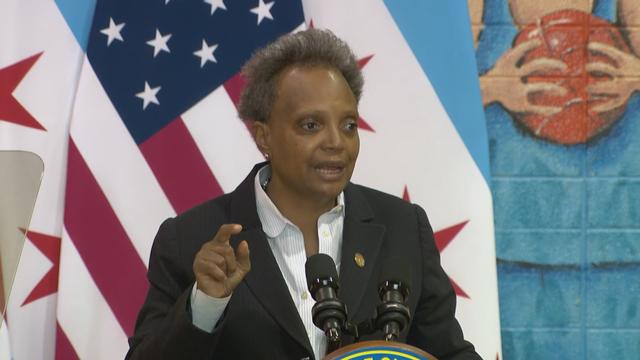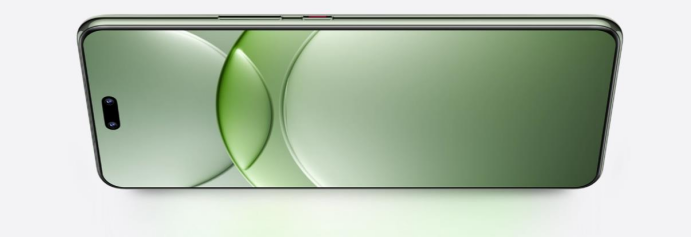Before 2021 comes to a close, Chicago has surpassed 800 homicides. Carjackings are up.
People are scared.
Thanks to our sponsors:
View all sponsors
“I know that people for whom violence is a daily concern are particularly stressed. And that more recently violence is creeping into other neighborhoods that have not historically been burdened by violent crime. As the mayor of this city, I want to assure you that from day one in my time as mayor public safety has been, is, and will continue to be my highest priority,” Mayor Lori Lightfoot said on Monday in a special speech aiming to show that she’s taking it seriously, with proposals like calling for anyone accused of violent crimes to be kept in jail pre-trial, hiring more homicide detectives, and a call for the federal government to send more agents to Chicago to fight gun trafficking across state lines.
Lightfoot has consistently harped on the county’s criminal court system for what she portrays as lenient treatment of offenders accused of violent crimes.
She reiterated that in her address, saying that it “defies common sense” that local judges have released from jail on electronic monitoring offenders accused of crimes like rape or holding someone at gun point, a pattern that she said has left Chicago neighborhoods “up for grabs.”
Everyone is presumed innocent until proven guilty and jails should not be debtors’ prisons full of offenders behind bars because they cannot afford to pay bond, she said.
“But if you are charged with killing someone, trying to kill someone, taking a vehicle with gunpoint, rape or violence against someone in your home or theirs? For those people I absolutely believe that they should be locked up, pending trial, because they are demonstrating ‘real and present threat to the physical safety of people and community’ as defined under Illinois state law,” she said.
Lightfoot, a former federal prosecutor who catapulted on the political scene after serving as head of the head of the Chicago Police Board, is calling for a moratorium on electronic monitoring for individuals accused of those crimes.

She says monitoring is supposed to come with supervision, but that's not happening.
“In Cook County, there’s virtually no supervision nor any mandated community interventions. The Cook County electronic monitoring system is fundamentally broken in a way that is making our city unsafe,” she said. “The county courts need to get the balance back and reserve electronic monitoring only for nonviolent offenders.”
It is unclear how the moratorium would work. Lightfoot’s office did not respond to a request for details and she did not take questions from journalists after her afternoon address at the Garfield Park fieldhouse, but she said she will formally ask Chief Judge Tim Evans to implement the moratorium.
Evans’ spokesperson issued a statement Monday evening saying that the office had not received a request from the mayor.
“We share the concerns about the tragic violence in our community. This is both a local and a national problem. We look forward to continuing to work with our partners in finding solutions to this complex issue,” the statement read.
Evans did not directly respond to the general sentiment of Lightfoot's criticisms of the judicial system.
Cook County State’s Attorney Kim Foxx’s office also issued a statement with routine language that did not directly target any of the mayor’s proposals.
“The Cook County State’s Attorney’s Office agrees that the rise of violence in Chicago and in cities and towns across the country is concerning.The crisis of violence requires a multifaceted approach by the City and County,” Foxx’s office said. “We remain committed to working with all of our partners to achieve safety in all of our communities.”
Cook County public defender Sharone Mitchell called Lightfoot’s plan regressive, and questioned its legality.
“The proposal around bond (is) clearly unconstitutional given that every single person is entitled to an individualized hearing specific to their case and quite frankly it would result in the incarceration of an untold number of people who are innocent and did nothing.”
He also said by disrupting communities, the plan would have the opposite effect of its intent.
“This idea that we’re going to start punishing people just based upon an allegation by the Chicago police department we believe will not only explode the jail population, not only will cause a number of innocent people to be incarcerated, but it will do nothing to actually keep our communities safe,” Mitchell said.
Mitchell has advocated for decriminalizing illegal gun possession, and noted that the mayor’s plan calls for pre-trial detention of not only those accused of using a gun, but also those accused of wrongfully having one.
Lightfoot in her speech, as she has before, called for the opposite tact, and pushed for Congress to enact universal background checks prior to gun purchases and for state legislators to crack down on so-called ghost guns, which can be assembled at home made from parts without serial numbers like those used by law enforcement to trace firearms used in crimes.
The mayor said the city will add more homicide detectives and decrease the caseload of detectives working homicides, with a goal of further improving the clearance rate for solving cases.
But the mayor said only the federal government can counter the trafficking of guns across state lines.
Lightfoot said she will make a formal ask of U.S. Attorney Merrick Garland to send more agents to Chicago.
In dealing with gangs, the mayor highlighted the $1 million earmarked in reward money for community members who come forward to help police solve crimes, and said the city will redouble efforts toward supporting those who are reentering society after prison.
Another plank of the mayor's plan is something she’s also talked about before: going after gang leaders’ profits. There has not so far been support in City Council for the civil asset forfeiture plan, with critics saying it increases distrust of the criminal justice system while disproportionately targeting poor people of color.
Lightfoot hinted she’s got a fresh version up her sleeve, saying that former incarnations of civil asset forfeiture used in the ‘90s were rightfully tossed, but gave no details on if, or how, she is refreshing her proposal.
She also called license plate readers a “game changer” in tracking criminals, and said Chicago will “substantially expand” the city’s network of cameras and license-plate reading technology.
Chicago will also invest record amounts of money in community organizations.
Lightfoot said violence and crime are manifestations of deeper problems, and that solving them requires addressing historic poverty and neglect.
“If we truly want to end the cycle of community violence once and for all, aside from holding violent, dangerous people accountable, we must get at the root causes of violence,” she said. “We can and we must invest our way out of this problem.”
Follow Amanda Vinicky on Twitter: @AmandaVinicky




